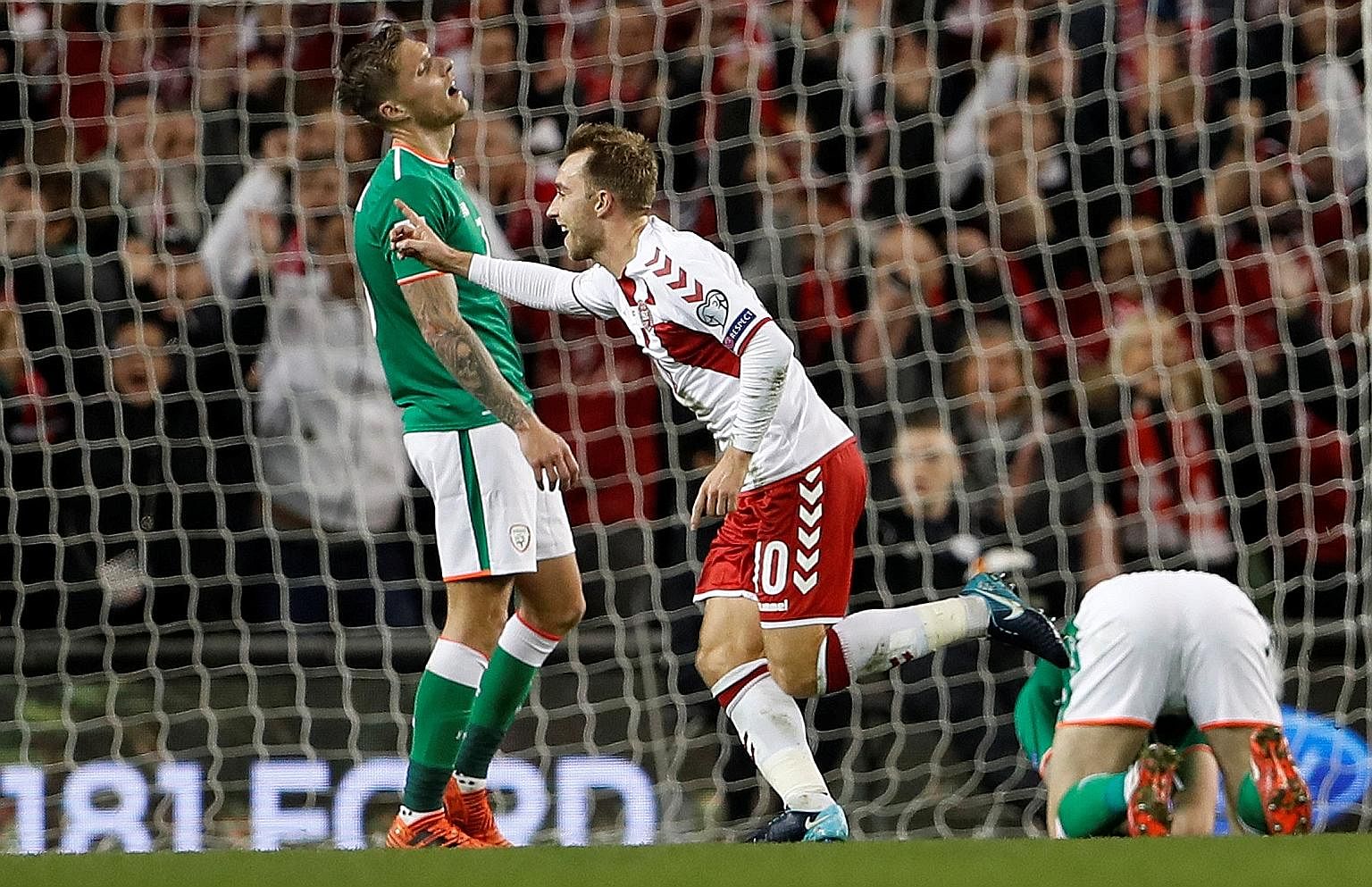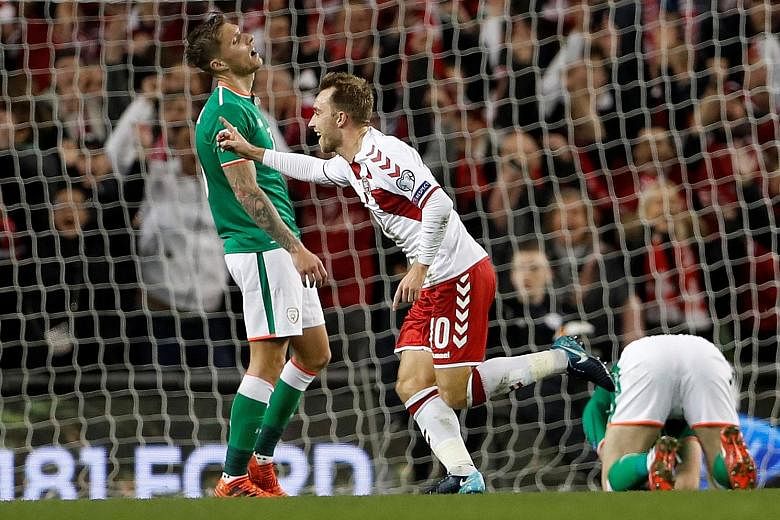The long journey to the World Cup in Russia is partly set in motion by the right foot of a dancing midfielder from the city of Thimphu in Bhutan. It begins on March 12, 2015 when Tshering Dorji, then 20, picks up the ball in the box and slots home a 82nd-minute goal to upset Sri Lanka 1-0 in Colombo.
There is no adventure in sport quite like this, involving 209 nations, 868 matches, assorted broken hearts and enough air miles to get to Pluto and back. And it's just kind of sweet that of the 2,454 goals scored in the campaign the first one listed on the Fifa website is by a midfielder from the then 209th-ranked nation in the world.
And of course there's a story to it.
On the night before the match, Dorji says his roommate, the goalkeeper, takes a "funny picture" of him and posts it as a lark on Facebook with the message, "Man to be watched for tomorrow's game". Next day he scores.
Now, on the phone from Thimphu, he is charming, WhatsApping me pictures of his goal celebration, talking of his dad who played for Bhutan, speaking of Neymar whom he loves and admitting he gets recognised on the streets of his town.
There are, we tend to forget, many heroes on the way to the World Cup.

The road to the Finals is a reminder of the reach of football and of its meaning. The weekly game these days is often about transfer deals, manager sackings and why some overpriced player hasn't scored in the last 372 minutes. But the qualifiers have a desperation to them, a sharper emotion, where winning a trophy isn't even the conversation, this is merely about being there, one of the 32 chosen.
Just listening to an Arabic-speaking commentator when Mohamed Salah of Egypt scores, his words foreign and yet their emotion plain, tells you about this Cup. Who would believe that at the first Cup in 1930 - as Brian Glanville wrote in The Story of the World Cup - the Austrians, Germans, Swiss and other European nations said "no" to showing up.
Now every nation builds their football system with the Cup as both destination and inspiration. Everyone wants to play at the Cup because everyone else who isn't there is watching. At the 2014 Cup, the number of broadcast hours was 98,087 and if a player is auditioning for a European club job he cannot find a wider and more attentive audience.
Qualifying tells us, again, that football belongs to everyone and that dreaming is not the preserve of the few. It is the world's reason to play. Saudi Arabians, Tunisians and Panamanians might not ever play for Real Madrid or Bayern Munich, but they love this Cup because it is within their reach.
They can get to it, they can show us who they are. On the Fifa website there is a video of Costa Rican star Junior Diaz, part of his nation's charge into the quarter-finals at the 2014 Cup, who says: "At the moment every boy wants to be a footballer in Costa Rica. Because they also want to write their own history."
In a changing world we might ask, what does this Cup still mean and one image explains it, a picture that is old and yet always newly haunting. Men collapsed in despair on their haunches, looking down, as if staring at their amputated dreams.
Northern Ireland rue a controversial penalty given to Switzerland. Congo DR lead Tunisia 2-0 in a crucial qualifier in September in Kinshasa till the visitors score twice in the 77th and 78th minute and now Tunisia are in the Cup and not them. Can two years seem wasted?
Sport has its own version of cruelty and Chris Jones captured it movingly on espnfc.com. If things go to plan, he writes, "for the first time in my not-young life, I will see Wales, Land of My Fathers, the best Wales there has ever been, play for the greatest trophy in sport". But victory won't come against Ireland. "Instead, a 1-0 loss. A single mistake, and it's over. For Welsh football, there is no more present tense."
Big nations have history, but football offers humility. Silvio Gazzaniga, designer of the Cup trophy, once said of it: "Seeing as it was made by an Italian, it's only logical that there will always be a bit of Italy in it." But there is no Italy in this Cup. No Holland, too. Together they have been to nine finals but a great past is not a free pass to the future.
Yet for all this national jousting, so intertwined is football's family that the misfortune of one man - Gianluigi Buffon - turns into cross-continental mourning. Egypt's goalkeeper Essam El-Hadary tweets "all the World Cup goalkeepers will play for you" and a young man from Bhutan, who stays up till 2am to watch, says: "I am very sad ... and I feel pity on Italy."
Dorji is now a midfielder with Thimphu City FC, earns roughly US$170 a month as a national player and is watched by an audience heavily populated with monks. He is not as famous as Buffon and yet he is also part of this extraordinary saga of qualifying, part of its influences, its romances, its little legends. He may never get to this Cup yet his right foot on a Sri Lankan afternoon ensured he will always belong to it.


